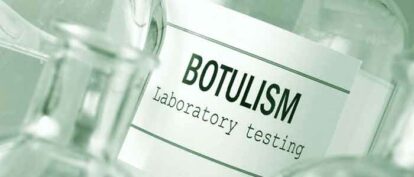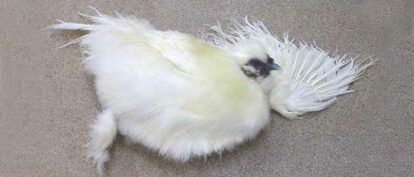Mycoplasma Synoviae bacteria often infect birds when their immune systems are low, such as when they have Infective Bronchitis (a cold) and seems to strike more during cold, damp weather.
Birds that die usually die because of a secondary infection that takes hold whilst the bird is weak.
Other Names: M.S, Infectious Synovitis, Enlarged Hock Disease
Symptoms: Slow growth (for young birds), pale comb, lameness and followed by ruffled feathers, greenish droppings with excess white urates, blue comb, sometimes swollen hocks and feet that are hot to touch.
Area affected: Joints, especially the hocks.
Causes: Mycoplasma Synoviae Bacteria.
Transmission: Infection from other carrier birds (from their respiratory discharges), including wild birds. Through hatching eggs. From infected dust / bedding material. Chicken and Turkeys can cross infect one another, other species have their own type of Mycoplasma that cannot cross infect. Mycoplasma is highly contagious and can be carried in on shoes, clothing and feeders / drinkers etc. Mycoplasma can survive for several hours on these things.
Diagnosis: Contact with wild birds or other carriers (poultry shows), bringing new birds in that are carriers, stress factors (change of food, house, worming, over crowding, illness, new birds in the flock, weather – snow covering the ground for example, shortage of food or water, ammonia from soiled bedding). Laboratory identification of Mycoplasma Synoviae bacteria in post-mortem.
Prevention: Good biosecurity, minimise stress, keep litter dry, vaccination is possible but is done via an inhaled mist and equipment to administer is expensive, keep birds immune systems strong with the right diet. Fresh crushed garlic in food or water is great for the immune system and Apple Cider Vinegar. After an infection, disinfect housing and leave for 2 weeks. Mycoplasma cannot survive for long in the environment.
Treatment: Usually antibiotics: Tylan, Baytril, or Gallimycin as advised by your vet. Treatment needs to be early on for a greater chance of recovery.
Risk to Human Health: None known.



